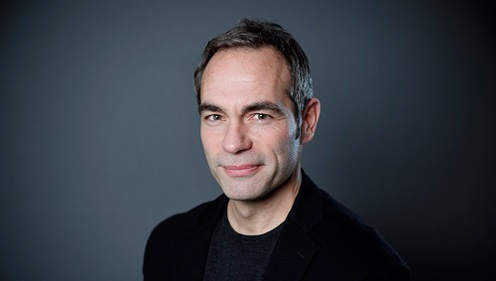New Research Venture: What is Sustainable Tea?
In early spring 2018, a new research project titled SUSTEIN that investigates the process of sustainable certification of tea in Africa, will start at the Centre of African Studies, University of Copenhagen. It will be led by Martin Skrydstrup who has been awarded one of the highly sought-after Sapere Aude Starting Grants.

Photo credit: Tariq Mikkel Khan/the Danish Council for Independent Research.
Tea is the most consumed beverage in the world next to water. But what is sustainable tea? How is it being certified? And who benefits from which sustainability standards? These are the questions that Honorary Research Fellow Martin Skrydstrup is going to investigate with his new research project ‘Sustainability's Infrastructure: A novel ethnographic approach to the global value chain of certified tea’ (SUSTEIN). He has just received a prestigious Sapere Aude Starting Grant from the Danish Council for Independent Research to carry out the project.
“In our daily life we meet more and more goods that are certified. But do we really know what labels such as MSC in the refrigerator, FSC on the milk carton, UTZ on chocolate and FLO on the coffee means? In this project we will investigate how the tea industry competes on sustainability and how the concept of sustainability becomes a commodity in itself,” he says.
The purpose of the project is not to rate the value of the specific sustainability certificates, but to clarify the terms under which such certifications are constructed, and the roles they play in the global value chains to create more transparency about sustainable certification - not least the impacts of the different types of certification. Tea is the specific case but the research project has potential to give the world more generally a better understanding of sustainability certification processes across industries.
According to Martin Skrydstrup, the aim is to reveal the processes that precede our encounter with the sustainable certification labels we meet in our daily lives.
“Through investigating the infrastructure of the tea industry from Kenya to Dubai we will be able to demonstrate how the concept of sustainability is understood and implemented, and who benefits from it. Among other things, this will deepen the knowledge we are able to use to advise relevant organisations on both national and international levels about sustainability standards and certification. Our ambition is to establish a new theoretical framework with which to understand and sustainability standards globally.”
Follow the tea
Martin Skrydstrup receives 5.886.680 DKK for the research project which will include two new postdoc positions. The research team will combine anthropological fieldwork in several different sites along the global tea chain together with archival studies, in order to investigate the inter-related roles of legislation, institutions and economic structures within global value chains. The empirical principle is to follow systematically the journey of tea from plant to cup.
The project will be situated within the Centre of African Studies at the Faculty of Theology, University of Copenhagen. Questions of environmental change and sustainability in Africa are already part of the Centre’s research profile, which will be strengthened with the addition of the SUSTEIN project.
Amanda Hammar, Director of the Centre of African Studies, is delighted to be hosting such innovative research.
“This project not only addresses crucial concerns with sustainability itself, but through its sophisticated approach, it will trace the important interplay of governance and production systems, of discourse and materiality, of the local and the global. This type of interdisciplinarity reflects the best kind of African Studies to which Centre of African Studies is committed.”
The research project is planned to run initially for 2,5 years.
The Sapere Aude Starting Grant replaces an FP2 Grant awarded to the SUSTEN project by the Danish Council for Independent Research.
Related News
Contact
Martin Skrydstrup
Centre of African Studies
mcs@teol.ku.dk
Phone: +45 35 33 19 92
Martin Skrydstrup
Martin Skrydstrup holds a PhD in cultural anthropology from Columbia University and MA from University of Copenhagen.
His current research is concerned broadly with the relationships between expertise, governance and the constitution of “natural resources” and nature as a sustainable resource within global value chains.
He has studied in Paris, New York, Uppsala and Tübingen and lived and worked in Kenya for three years. Besides Danish, his mother-tongue, he speaks English, German, French and Fang/Swahili.
